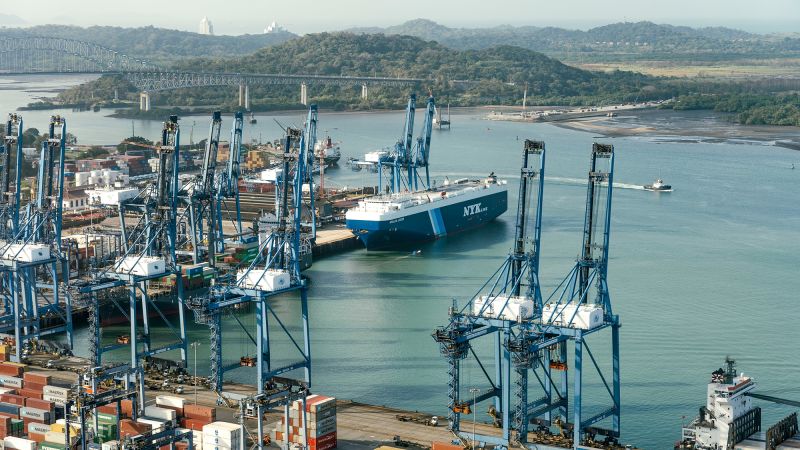
Panama Canal Port Sale Sparks Geopolitical Tensions
The proposed sale of key Panama Canal port assets to a consortium spearheaded by BlackRock has ignited a firestorm of international controversy, highlighting the delicate geopolitical balance surrounding this crucial waterway. The deal, shrouded in some secrecy, has met with significant resistance, particularly from Chinese officials, leading to a dramatic market response and raising serious questions about the future of the canal’s operations and global trade dynamics.
The core of the controversy centers on the potential shift in influence over the Panama Canal. The canal itself remains under Panamanian sovereignty, but the operation and management of its surrounding infrastructure, including vital ports, are increasingly intertwined with global capital and geopolitical strategies. The BlackRock-led consortium’s bid raises concerns about the concentration of power and the potential for US influence to overshadow other nations with vested interests in the canal’s smooth and unbiased operation.
China, a major user of the Panama Canal, has voiced its strong opposition to the sale. The immediate impact was evident in the sharp decline of the Hong Kong-based conglomerate’s stock price, which owns a substantial portion of the ports in question. This reaction underscores the interconnectedness of global finance and international relations, demonstrating how even a seemingly commercial transaction can trigger significant geopolitical ripples.
The Chinese government’s concerns likely stem from a multitude of factors. They include the potential for the US, through BlackRock’s involvement, to exert undue influence over the canal’s operations, potentially hindering or even restricting Chinese trade and access to markets in the Americas and beyond. The perceived shift in control could also be interpreted as a strategic move by the US to consolidate its power in the region and counter China’s growing economic influence in Latin America.
This isn’t just about economics; it’s about strategy. The Panama Canal is a critical artery of global trade, facilitating the movement of billions of dollars worth of goods annually. Control over its infrastructure carries significant strategic weight, influencing everything from shipping routes and costs to regional economic stability. The proposed sale is therefore being viewed through a lens of geopolitical power dynamics rather than solely as a business transaction.
The resistance isn’t limited to China. Other nations with significant interests in the canal, particularly those heavily reliant on the efficient movement of goods, are likely closely monitoring the situation. The lack of transparency surrounding the deal further fuels concerns about its long-term implications for global trade. Questions about the due diligence process, the level of oversight, and the overall fairness of the transaction are all likely contributing to the backlash.
The ultimate outcome of this proposed sale remains uncertain. The resistance from key stakeholders, particularly China, will likely force renegotiations or even a complete re-evaluation of the deal. The controversy underscores the complex interplay between commercial interests, geopolitical ambitions, and national security in a globalized world, highlighting the delicate balance that must be maintained when such strategically significant assets are up for sale. This situation is likely to continue to unfold, with its implications echoing far beyond the Panama Canal itself.



Leave a Reply